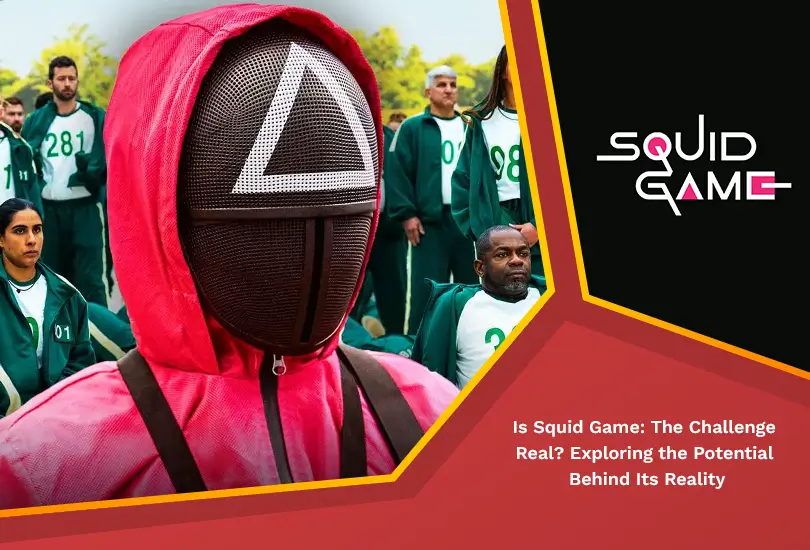Betty is an enthusiastic Computer Science Graduate and an extrovert who loves to watch Netflix, and is a binge-watcher always seeking quality shows to add to her watch history! She loves to write about the show, she has watched, to make her readers acknowledge them, and witness a cherished time with friends, and family!
Squid Game: The Challenge is a reality TV show. Its themes of competition and survival are rooted in reality, drawing inspiration from societal issues and human nature. Read more to know about the reality behind the show.

Netflix has launched one of its most popular shows Squid Game: The Challenge. It is a reality competition where 456 participants face Squid Game-inspired trials, sparking debates about its authenticity. While the series avoids the intense brutality of Squid Game, viewers remain intrigued about its realism. Contestants endure grueling tests akin to the show’s challenges, aiming to be the last standing player and win a historic $4.56 million prize the largest in Netflix’s history.
Diverging from the life-threatening scenarios in Squid Game, ‘Squid Game: The Challenge ensures contestants’ safety by using exploding packets to shower them with ink upon losing, rather than harming them. Despite the similarities in challenges, the show’s departure from the drama’s difficult nature spread speculation about its reality within the reality competition genre.
According To The Cast Members Squid Games Season 2 is Rigged
Despite airing only a few episodes of Squid Game: The Challenge season 1, reports emerged prior to its premiere suggesting potential rigging within the competitions. While the original Squid Game aimed for intricate challenges, uncertainties threatened regarding the difficulty level of its reality competition adaptation. Opinions changed, with some anticipating an easier experience while others recognized the demanding nature like a test of mental resilience, physical prowess, and strategic gameplay.
Crafting an authentic gaming experience from the essence of the series proved challenging. However, the production team might have heavily drawn from the show’s elements, leading to notably difficult challenges for certain participants. This resulted in varied perceptions, where some contestants found the tasks suited their strengths while others struggled. Early exits from Squid Game: The Challenge season 1 fueled beliefs among some contestants that the competitions were biased against them, fostering the perception that the production favored specific players to triumph in the game.
The Challenges Of Squid Games Season 2 Having Complexed Rules
Translating the rules of Squid Game into a real-world context posed challenges for Squid Game: The Challenge, leading to a perplexing adaptation. Similar to the original, participants in the Netflix series face elimination for a single misstep. However, concerns about fairness arise due to certain contestants enjoying unexplained advantages while others confront swift and challenging decisions, altering the power dynamics within the game.
Moreover, during the early stages of filming Squid Game: The Challenge, some contestants raised complaints about allegedly inhumane filming conditions. Although these allegations have been denied, they remain distressing. Participants claimed they endured freezing temperatures while waiting for the setup of the first competition, enduring approximately 7 hours without food or water before engaging in an arduous 8-hour competition, frequently interrupted for production assessments.
Furthermore, while not expected to mirror Squid Game entirely, Squid Game: The Challenge significantly deviates from the original, showcasing an evident influence of production in shaping the competition’s storyline. Incorporating familiar challenges such as Red Light, Green Light, and the Dalgona Cookie Challenge from Squid Game, the series introduces additional tests crafted solely by the production team behind Squid Game: The Challenge.
Additionally, while some competitions might have been skewed in favor of certain competitors, others appeared designed to hinder rivals’ chances of winning in Squid Game: The Challenge. The production team may have devised tests aimed at prompting participants to target their potential allies. Unlike the original Squid Game, this adaptation heavily relies on strategy, enabling production to intervene at points, and influencing contestants to eliminate players they might otherwise have supported.
Whether intentional or negligent, the conditions highlight the potential for producers to influence and manipulate the game, detracting from its authenticity.
Related Articles:




